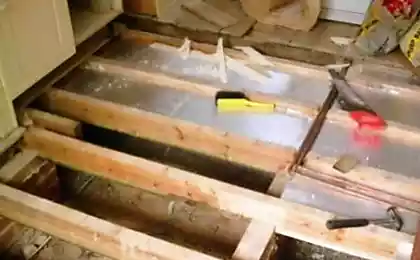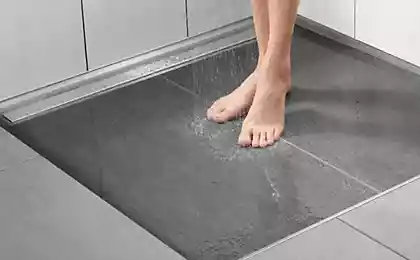133
“If I drop food on the floor, I’ll eat it!” A pediatrician claims that eating from the floor is much safer than daily use.
Surely you know the feeling that arises while the sandwich flies to the floor. In those seconds, all the pain and disappointment are woven into one thought - but not oil down. Admit it, were you lucky enough to save a long-awaited treat?
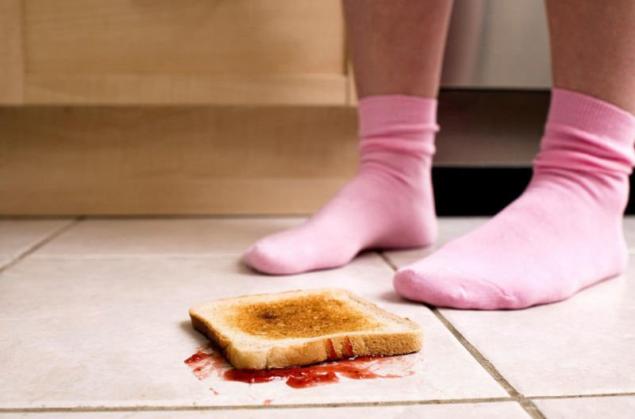
We have known the rule since childhood - quickly raised is not considered fallen. Does it really work? Or, conversely, lifting fallen food, we add to our body work to fight dangerous bacteria? Surely. Personal hygiene and human health They're directly connected.
The whole scientific world gathered near a falling sandwich. Even came up with a special rule “5 seconds”, where food that has touched the floor remains safe for 5 seconds. Then they start to accumulate on it. malignant.
That sounds like crap to me. Imagine your bread lying buttered down on the kitchen floor waiting. Germs are waiting. After 5 seconds, they attack healthy food. But if you show extreme skill and agility, you can save the sandwich without consequences! The main thing is to stay in 5 seconds.
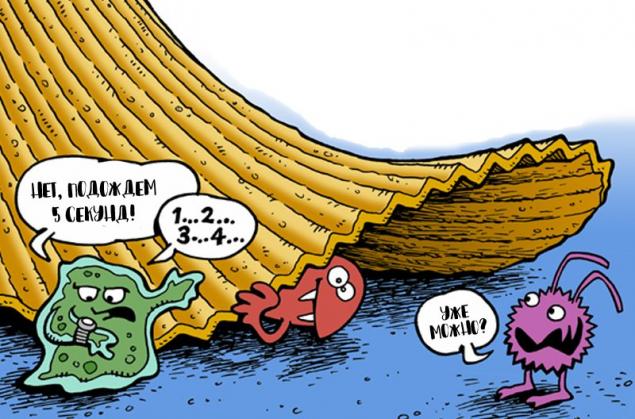
Famous Pediatrician Eugene Komarovsky Medical science says there is a 99 percent chance that if you lift food off the floor, nothing will happen to you. However, eating off the floor is not recommended, and the 5 seconds rule doesn’t really work. It is important to consider the degree of risk, which depends on what has fallen and where.
In the vast majority of cases, germs do not live on the floor, but on people’s hands and mouths! A grandmother who kisses a child is often more dangerous than a washed floor. It is not necessary to breed dirt in the house, but excessive cleanliness is a serious blow to the immune system.”
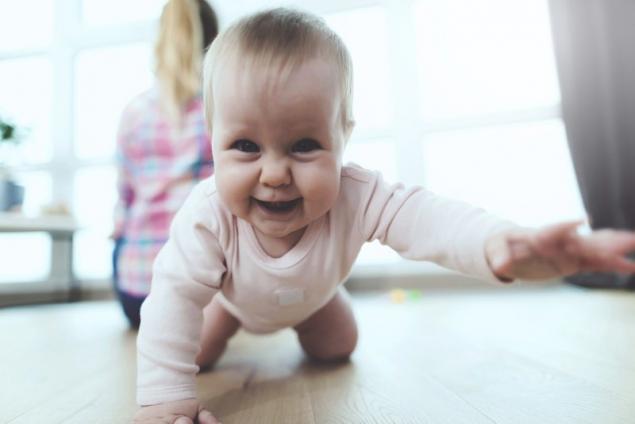
DepositPhotos
Really, what does the floor have to do with it? Is it worth fixating on? There are many more dangerous surfaces in the house! Here's how the American says it. Professor of Pediatrics Aaron KerrollThere is no magical safe period. But even so, I will be eating the food that fell on the floor of my kitchen. Why? Because it's not really that dirty. ?
Famous microbiologist Charles Herba He repeatedly studied bacteria that live on open surfaces in average homes. His team determined how well the cleaning products handled cleaning surfaces of E. coli. You'll be surprised at the result!
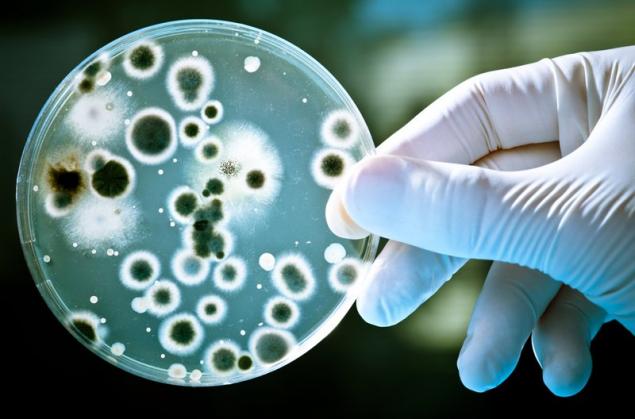
It turns out that only 2.75 colonies of E. coli bacteria per square inch live on the kitchen floor. On the handle of the refrigerator as much as 5.37 colonies, on the kitchen table - 5.75! And we are so worried that we will have to throw out the cookies that fell on the floor. How many times have you looked in the fridge today? Did you have breakfast at the kitchen table?
The scariest place in our house is the bathroom. And the most dangerous thing is the toilet? We care more about the toilet seat than we think. Only 0.68 colonies live on its surface! But on the drain button almost 35, and on the handle of the mixer 15.84! In household leaders, dirt is not gender at all.
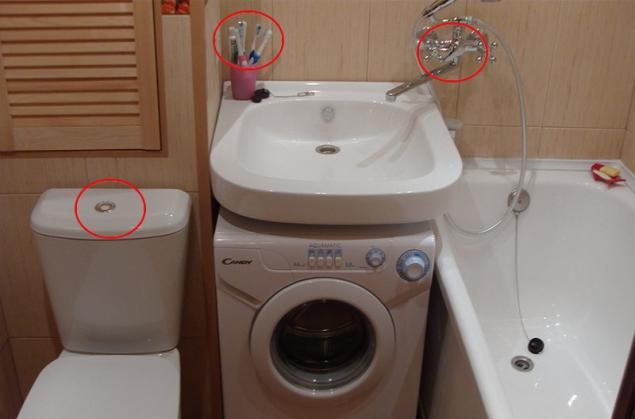
We're going to go a little further and look at medical professionals. People are like people, but most mobile phones are home to 95% of dangerous nosocomial bacteria (hospital), and 52% – peacefully lives Staphylococcus aureus. But observance of personal hygiene rules Handwashing is not always done after every phone call.
In the leaders of dirty ratings, of course, money. Do you always wash your hands when you eat street food you paid for in cash? 94% of the bills are colonized by bacteria, 7% of which are pathogenic to healthy people and 87 % for hospitalized people and those with immune problems. I'm sure your money is in your wallet. When was the last time you cleaned it?
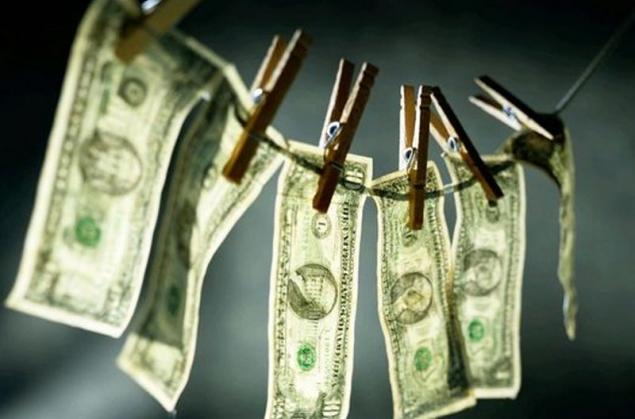
If there is something in the house that is dirtier than a wallet, it is an ordinary, invisible and unremarkable kitchen sponge. Most people don’t even think about disinfecting it after use. Lies down for months, doesn't touch anyone. Charles Herba identified her. dirtiest object in the houseIt is home to 20 million colonies per inch! The term of its use is a maximum of a week, and optimally 3-5 days!
I'm not going to write about toothbrush, washcloth, towels and doorknobs. Every house is a huge breeding ground of bacteria. We live in it, touch dirty objects, and nothing happens!
Do not take the above information as a guide to panic, fall into paranoia and massively buy deodorizing solutions. It is important to teach yourself and your children to wash their hands after walking, before eating, after playing with animals. There is no better way to protect you from viruses and bacteria than washing your hands.
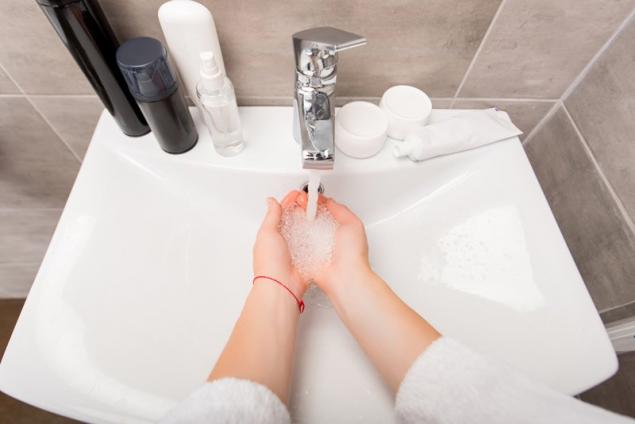
DepositPhotos
Remember that excessive sterility has a bad effect on the formation of childhood immunity.
Of course, you can think completely differently. In any case, make an informed decision considering the real risks, not an arbitrary period of time for which different objects touch.
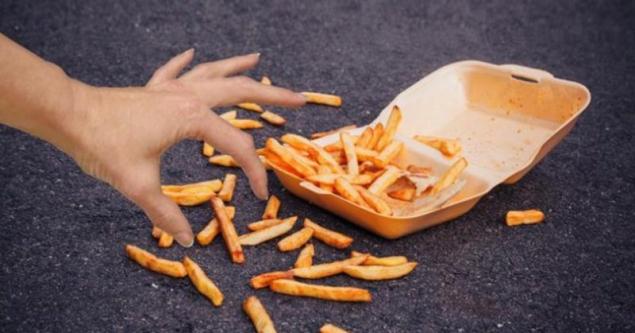
If you liked the article, show it to your friends on social media! Many people do not even know what is happening at home.

We have known the rule since childhood - quickly raised is not considered fallen. Does it really work? Or, conversely, lifting fallen food, we add to our body work to fight dangerous bacteria? Surely. Personal hygiene and human health They're directly connected.
The whole scientific world gathered near a falling sandwich. Even came up with a special rule “5 seconds”, where food that has touched the floor remains safe for 5 seconds. Then they start to accumulate on it. malignant.
That sounds like crap to me. Imagine your bread lying buttered down on the kitchen floor waiting. Germs are waiting. After 5 seconds, they attack healthy food. But if you show extreme skill and agility, you can save the sandwich without consequences! The main thing is to stay in 5 seconds.

Famous Pediatrician Eugene Komarovsky Medical science says there is a 99 percent chance that if you lift food off the floor, nothing will happen to you. However, eating off the floor is not recommended, and the 5 seconds rule doesn’t really work. It is important to consider the degree of risk, which depends on what has fallen and where.
In the vast majority of cases, germs do not live on the floor, but on people’s hands and mouths! A grandmother who kisses a child is often more dangerous than a washed floor. It is not necessary to breed dirt in the house, but excessive cleanliness is a serious blow to the immune system.”

DepositPhotos
Really, what does the floor have to do with it? Is it worth fixating on? There are many more dangerous surfaces in the house! Here's how the American says it. Professor of Pediatrics Aaron KerrollThere is no magical safe period. But even so, I will be eating the food that fell on the floor of my kitchen. Why? Because it's not really that dirty. ?
Famous microbiologist Charles Herba He repeatedly studied bacteria that live on open surfaces in average homes. His team determined how well the cleaning products handled cleaning surfaces of E. coli. You'll be surprised at the result!

It turns out that only 2.75 colonies of E. coli bacteria per square inch live on the kitchen floor. On the handle of the refrigerator as much as 5.37 colonies, on the kitchen table - 5.75! And we are so worried that we will have to throw out the cookies that fell on the floor. How many times have you looked in the fridge today? Did you have breakfast at the kitchen table?
The scariest place in our house is the bathroom. And the most dangerous thing is the toilet? We care more about the toilet seat than we think. Only 0.68 colonies live on its surface! But on the drain button almost 35, and on the handle of the mixer 15.84! In household leaders, dirt is not gender at all.

We're going to go a little further and look at medical professionals. People are like people, but most mobile phones are home to 95% of dangerous nosocomial bacteria (hospital), and 52% – peacefully lives Staphylococcus aureus. But observance of personal hygiene rules Handwashing is not always done after every phone call.
In the leaders of dirty ratings, of course, money. Do you always wash your hands when you eat street food you paid for in cash? 94% of the bills are colonized by bacteria, 7% of which are pathogenic to healthy people and 87 % for hospitalized people and those with immune problems. I'm sure your money is in your wallet. When was the last time you cleaned it?

If there is something in the house that is dirtier than a wallet, it is an ordinary, invisible and unremarkable kitchen sponge. Most people don’t even think about disinfecting it after use. Lies down for months, doesn't touch anyone. Charles Herba identified her. dirtiest object in the houseIt is home to 20 million colonies per inch! The term of its use is a maximum of a week, and optimally 3-5 days!
I'm not going to write about toothbrush, washcloth, towels and doorknobs. Every house is a huge breeding ground of bacteria. We live in it, touch dirty objects, and nothing happens!
Do not take the above information as a guide to panic, fall into paranoia and massively buy deodorizing solutions. It is important to teach yourself and your children to wash their hands after walking, before eating, after playing with animals. There is no better way to protect you from viruses and bacteria than washing your hands.

DepositPhotos
Remember that excessive sterility has a bad effect on the formation of childhood immunity.
Of course, you can think completely differently. In any case, make an informed decision considering the real risks, not an arbitrary period of time for which different objects touch.

If you liked the article, show it to your friends on social media! Many people do not even know what is happening at home.
What is the key to a good mood and how to learn to enjoy simple things
Why you don’t eat the Queen of Croup in Europe





